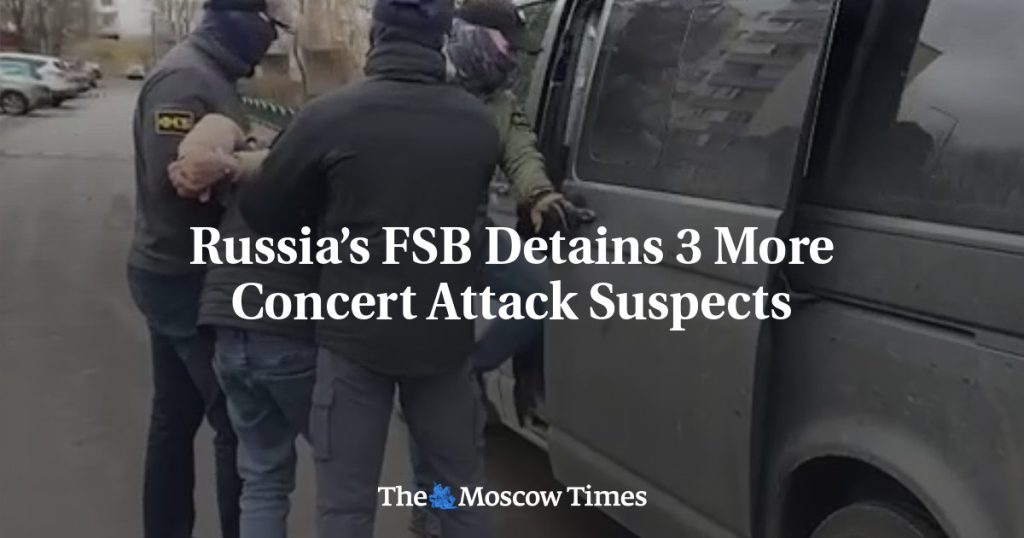The Federal Security Service (FSB) of Russia has detained three more suspects in connection with the deadly concert hall attack that took place outside Moscow last month. The suspects include a Russian citizen and two foreign citizens from Central Asia. The FSB stated that two of the detainees were involved in transferring money for the purchase of firearms and vehicles used in the terrorist attack, while the third was suspected of recruiting and financing the gunmen responsible for the attack. A total of eleven people, including four suspected gunmen, have been detained in connection with the incident.
The attack at the Crocus City Hall music venue resulted in at least 145 deaths and hundreds of injuries, making it the deadliest attack in Russia since the 2004 Beslan school siege. The FSB did not specify whether the two individuals who transferred money for the weapons and vehicles were foreign citizens. A video released by the FSB showed the detention of four individuals, but their identities could not be verified due to their faces being covered. President Vladimir Putin and other top Russian officials have accused Ukraine and the West of being partially responsible for the attack, although no concrete evidence has been presented to support this claim.
The Islamic State affiliate ISIS-K claimed responsibility for the attack, with social media channels linked to the militant group disseminating graphic videos of the gunmen killing people at Crocus City Hall. Despite this claim, Kyiv and Western countries have denied any involvement and criticized Russian officials for allegedly exploiting the tragedy for political gain. The ongoing investigation into the attack continues to uncover new suspects and details related to the planning and execution of the terrorist act. The detainment of additional suspects by the FSB is a significant development in the case.
The Russian government has faced heightened scrutiny and criticism following the Crocus City Hall attack, with questions raised about security measures and intelligence failures that allowed the mass killing to occur. The country has a history of facing terrorism threats, particularly from militant groups in Central Asia and the North Caucasus region. The attack has raised concerns about the effectiveness of counterterrorism efforts in Russia and the broader implications for regional security. The involvement of foreign citizens in the attack highlights the global nature of terrorism and the challenges in addressing extremist threats in an interconnected world.
The FSB’s efforts to identify and detain individuals involved in the Crocus City Hall attack demonstrate a commitment to holding perpetrators accountable and preventing future acts of terrorism. The investigation is ongoing, with more details likely to emerge as authorities work to uncover the full extent of the plot and those responsible for the deadly attack. The international community will continue to monitor developments in Russia and offer support in combating terrorism and promoting stability in the region. The tragic events at the music venue have left a lasting impact on the country and underscore the importance of vigilance in addressing security threats in an increasingly complex and dangerous world.















